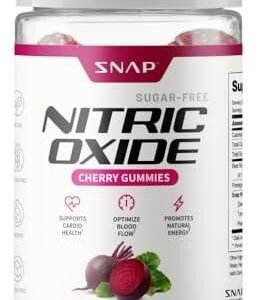In the intricate tapestry of human health, hydration is often the overlooked thread that weaves vitality into our daily lives. While the focus on nutrition typically shines a spotlight on macronutrients and micronutrients, the essential role of water remains shrouded in the background, silently orchestrating a symphony of bodily functions. As the body’s most vital component, water not only sustains life but also elevates the very quality of our nutrition, enhancing digestion, absorption, and nutrient transport. In this exploration of hydration’s vital role—“”—we will delve into the profound interconnections between adequate fluid intake and optimal wellbeing. From its impact on physical performance to its crucial contributions to mental clarity, we will uncover the layers of hydration that not only quench thirst but also empower our bodies to thrive in an increasingly demanding world. Join us as we navigate through the science of hydration, demonstrating that in our pursuit of health, a glass of water may be just as important as a balanced plate.
Table of Contents
- The Essential Link Between Hydration and Nutritional Absorption
- Unlocking the Benefits of Optimal Hydration for Physical Performance
- Hydration Strategies for Preventing Chronic Health Conditions
- Mindful Hydration: Enhancing Mental Clarity and Emotional Wellbeing
- Future Outlook
The Essential Link Between Hydration and Nutritional Absorption
Water is not just a thirst quencher; it plays a pivotal role in the intricate process of nutrient absorption within the body. When we consume food, our digestive system requires adequate hydration to effectively break down nutrients and transport them into the bloodstream. Without sufficient water, the body struggles with processes such as dissolving vital nutrients, transporting them to cells, and eliminating waste products. This can ultimately hinder the body’s ability to utilize essential vitamins and minerals, leading to nutritional deficiencies even if one’s diet appears balanced.
Moreover, hydration aids in the functioning of enzymes and hormones that are crucial for digestion. When well-hydrated, the intestinal lining, responsible for absorption, operates efficiently, ensuring that nutrients from food are maximized. Consider these key aspects of hydration’s role in nutrient absorption:
- Enzyme Activation: Water activates enzymes that help break down food.
- Barrier Maintenance: A well-hydrated mucosal lining protects and enhances absorption.
- Nutrient Solubility: Many vitamins, particularly those soluble in water, require hydration to be absorbed.
Unlocking the Benefits of Optimal Hydration for Physical Performance
Optimal hydration is essential for athletes and fitness enthusiasts alike, as it can significantly enhance physical performance. When the body is adequately hydrated, it operates like a finely tuned machine. Benefits of staying hydrated include:
- Improved endurance during workouts
- Enhanced strength and muscle recovery
- Better coordination and focus
- Reduced risk of cramps and injuries
It’s remarkable how even slight dehydration can affect performance; a mere 2% drop in body weight from fluid loss can lead to noticeable fatigue. Therefore, recognizing your body’s signals and maintaining hydration levels can foster not just better performance, but also overall wellness.
To maintain optimal hydration, understanding the body’s needs and effective strategies is crucial. Below is a simple guide to hydration needs based on activity level and environmental factors.
| Activity Level | Water Intake Recommendation |
|---|---|
| Sedentary | 2.7 to 3.7 liters per day |
| Moderate Exercise | 3 to 4 liters per day |
| High-Intensity Training | 4 to 6 liters per day |
Understanding these recommendations can empower you to make informed decisions about fluid intake, ensuring that hydration enhances rather than hinders your performance.
Hydration Strategies for Preventing Chronic Health Conditions
Maintaining optimal hydration is not merely a question of quenching thirst; it is a foundational strategy in preventing numerous chronic health conditions. Adequate water intake plays a crucial role in regulating bodily functions, including digestion, circulation, and temperature control. Being well-hydrated contributes to the efficient transportation of nutrients and waste removal, which can significantly affect long-term cardiovascular health and metabolic function. To enhance hydration, consider incorporating a variety of water-rich foods into your diet, such as:
- Fruits: Watermelon, oranges, and strawberries
- Vegetables: Cucumber, celery, and lettuce
- Soups and Broths: Homemade vegetable or chicken broth
Furthermore, establishing a daily hydration goal can provide a structured approach to maintaining fluid balance. Tracking your intake helps raise awareness and encourages consistent drinking habits. Here’s a simple way to visualize hydration needs based on activity levels:
| Activity Level | Recommended Water Intake |
|---|---|
| Low (Sedentary) | 8 cups (64 ounces) |
| Moderate (Light Exercise) | 10 cups (80 ounces) |
| High (Intense Training) | 12 cups (96 ounces) |
By adopting these strategies, individuals can significantly enhance their overall well-being and reduce the risk of chronic diseases that stem from dehydration, such as obesity, diabetes, and kidney stones. Remember, listening to your body and adjusting your hydration practices accordingly is key to establishing a healthy routine.
Mindful Hydration: Enhancing Mental Clarity and Emotional Wellbeing
Hydration plays an essential yet often overlooked role in mental clarity and emotional wellbeing. Our brains are comprised of approximately 75% water, and maintaining optimal hydration levels is crucial for cognitive function. When we are adequately hydrated, we experience improved focus, better memory recall, and enhanced problem-solving abilities. Conversely, dehydration can lead to fatigue, irritability, and cognitive impairment. To harness the benefits of hydration, consider the following tips:
- Drink Water Throughout the Day: Instead of waiting until you’re thirsty, make it a habit to sip water regularly.
- Infuse Your Water: Add natural flavors like lemon, cucumber, or mint to make hydration more enjoyable.
- Monitor Your Intake: Keep track of how much water you consume using apps or simple water bottles with measurements.
Furthermore, the emotional benefits of hydration should not be underestimated. Staying well-hydrated can elevate mood and reduce feelings of anxiety or stress. Water aids in the regulation of serotonin levels, a key neurotransmitter responsible for regulating mood. To help visualize the relationship between hydration, mental clarity, and emotional wellbeing, consider the following table:
| Hydration Level | Mental Clarity | Emotional State |
|---|---|---|
| Dehydrated | Low | Anxiety |
| Moderately Hydrated | Improved | Neutral |
| Well Hydrated | Optimal | Positive |
By prioritizing mindful hydration, we can significantly enhance both our mental acuity and emotional resilience, fostering a healthier, more balanced life. Embrace the transformative power of water, and let it be a cornerstone of your wellness journey.
Future Outlook
hydration stands as the unsung hero of our nutritional journeys—a fundamental pillar that supports not just our physical health, but our overall vitality and well-being. As we navigate the myriad food choices and dietary trends, let us not overlook the clear, simple truth: water is the essence of life. Proper hydration empowers our bodies to absorb nutrients more effectively, aids in digestion, and promotes optimal performance in our daily activities.
As we cultivate our awareness of nutrition, let’s remember that every sip counts. Embracing the practice of mindful hydration can elevate our health to new heights, allowing us to thrive in an increasingly demanding world. So, as you fill your glass, remember—the path to radiant health and balanced nutrition flows through the waters of hydration. Here’s to a life well-nourished!





